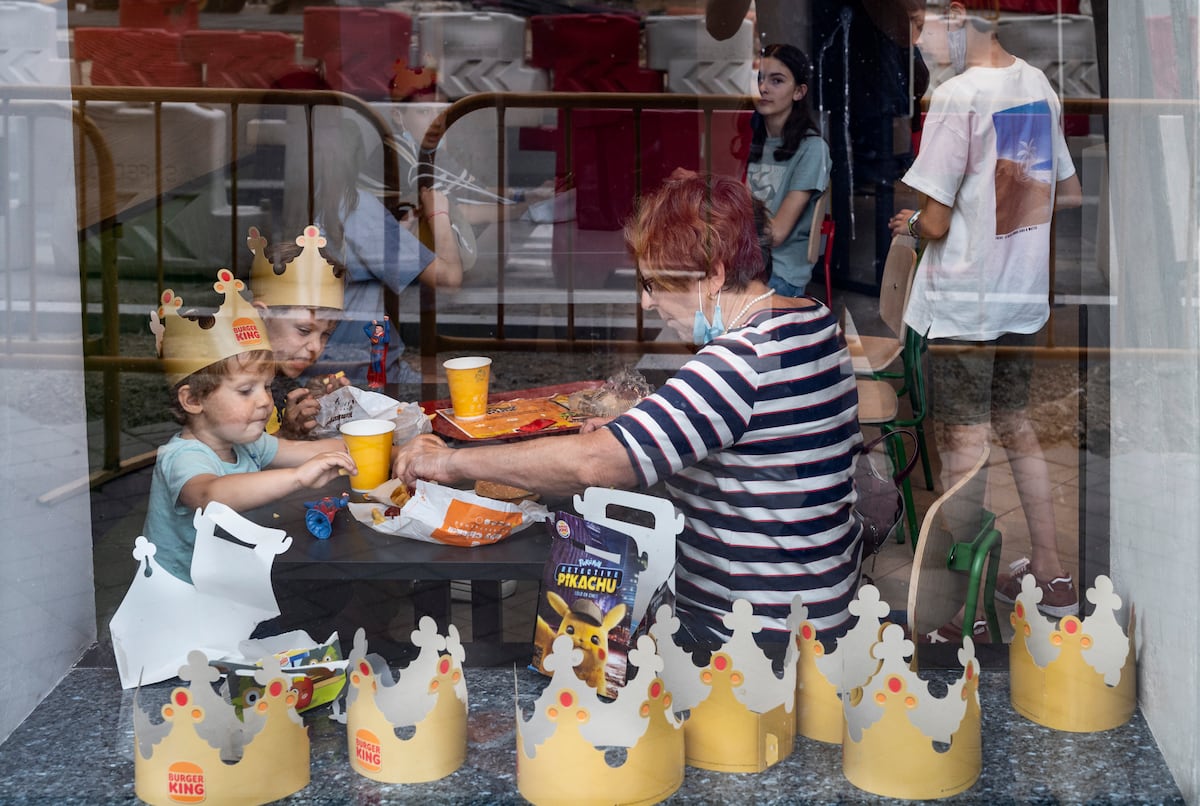When addressing the volume
Sitopía
(2022,
Captain Swing) I thought I was going to read a book, but I have come across a full-fledged library.
The British author Carolyn Steel walks the reader, through her 400 pages of thoughtful reflection, through the thoughts of dozens of authors —philosophers, thinkers, writers— both classic and contemporary, to present and argue her basic thesis: we must change with urgency our way of eating and producing food, which implies reassessing it.
Cover of 'Sitopia', by British writer Carolyn Steel, published by Captain Swing in 2022.
So many author quotes that truffle the text reveal the cultural background of Steel, who is a renowned architect, teacher and author.
At times she had the impression of reading a book written by an economist;
in others, by an anthropologist;
and, in others, by a philosopher.
The summary that she provides of the history of the relationship between the human being, food and nature from the night of time to the present day is very interesting.
The title of the book,
Sitopia
, is a neologism that the author has coined to talk about the relationship between food (sitos, in Greek) and place (topos, in Greek).
She maintains that we live in a world conditioned by food and our problem is that we are precisely not aware of it.
Many of our greatest challenges—climate change, mass extinction, deforestation, soil erosion, lack of water, pollution, antibiotic resistance, and diet-related diseases—are due to the fact that we do not value food.
More information
Fish wins the nutritional race over meat
So, in all logic, Steel weaves chapter by chapter an entire apology so that the reader agrees to change the conception of food from the outset and, rebound, everything that is implicit: agriculture, the relationship with nature, the meaning even of life and death.
How can it be that at this point in the movie (of the history of humanity) we have succumbed to "cheap" and "fast" food, which is, in the end, neither cheap nor fast, and which is slowly poisoning us?
One of the interests of the great classic culture of Steel is to stumble from time to time with more or less juicy quotes.
Thus, for example, I have learned that according to the naturalist Edward O. Wilson we have emotions of the Stone Age, institutions of the Middle Ages and technology of the gods.
And that is one of the problems: we have allowed technological advances to set the course, and not always the most "modern", read industrialized, modified, "laboratory-improved", is the best, when we talk about food and nutrition.
We have Stone Age emotions, Middle Ages institutions, and god-like technology.
I found the cause-effect relationship that Steel establishes between food, money and the crisis of the post-industrial world fascinating.
I quote: “When food was the basis of wealth, opportunities to get rich were limited, but even so, life was based on material reality.
However, the adoption of money five thousand years ago has reflected the history of civilization and the emergence of a type of wealth that is profoundly disconnected from land and work.
According to the Anglo-German economist EF Schumacher, our economic confusion and the preponderant role of money mean that we do not value our greatest source of wealth: nature.
Since we didn't create it ourselves, we treat it like it's free, but the fact that we didn't make it should make us value it more, not less.
Faced with the critical global situation, Steel advocates recovering the values of anarchism, "which has existed for almost two centuries and has barely had tangible results."
So why bother with him now? Steel wonders.
And she answers herself: “With populism on the rise and capitalism faltering, we need more than ever a social vision that transcends the fatal duality of neoliberalism and totalitarianism, that is capable of connecting us on both a local and global scale.”
That is the true meaning of sitopia: using food to understand what it means to be human and how to coexist with our human and non-human companions over time.
In summary, for the author, valuing what we eat and knowing what it is will allow us to reconnect with each other and with our world.
And that is the true meaning of sitopia: using food to understand what it means to be human and how to coexist with our human and non-human companions over time.
In my view, this conception rhymes with that of utopia, at least for the moment.
You can follow PLANETA FUTURO on
,
and
, and subscribe
here
to our 'newsletter'
.

